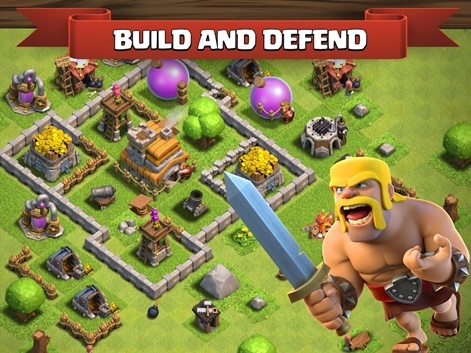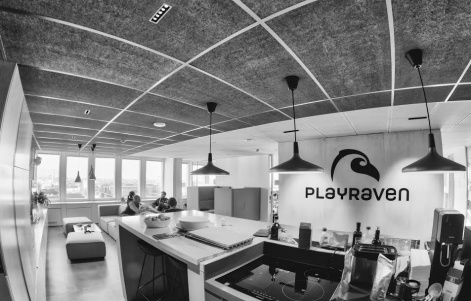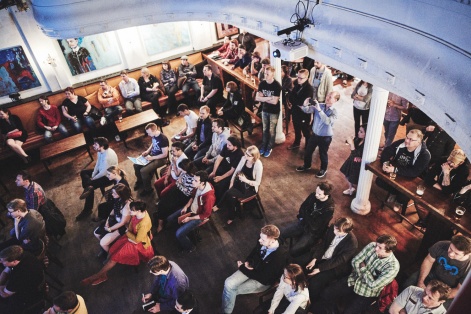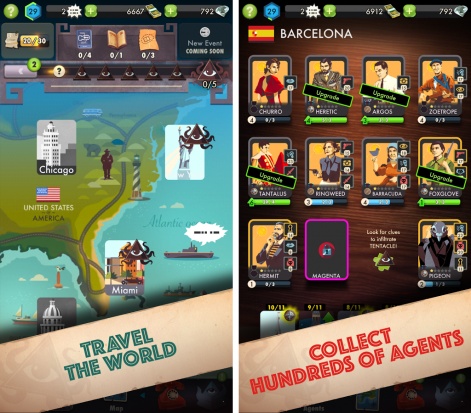In a games industry career spanning 20 years so far, Lasse Seppanen reckons he's experienced three distinct waves of mobile gaming.
The first was at the turn of the millennium when he was working on WAP and text message games for very early handsets, pre-dating even the halcyon days of Java.
“Most people don't even remember what WAP means,” he laughs.
Seppanen identifies the second as occurring “around 2003 to 2005”, at which point he was Head of Studio at Sumea.
Here he worked alongside four of Supercell's five co-founders, developing games for early feature phones.
“Ilkka [Paananen] was my boss, who later founded Supercell as the CEO, and the three others were working for me in the studio,” he recalls.
“I know them very well and we share a lot of thinking and DNA. I'm really happy about their success.”
Pastures new
Sumea was subsequently acquired by mobile gaming's then-dominant company Digital Chocolate in 2004, rebranding as the US firm's Helsinki arm.
The following year, Seppanen left the company - and mobile gaming - to work on a secretive new Xbox 360 IP at Max Payne developer Remedy.
I realised that with F2P, strategy was the genre that would be big.Lasse Seppanen
This turned out to be Alan Wake, a critically-acclaimed psychological thriller on which he was Executive Producer. Seppanen remained at the Espoo-based firm for six years.
The third wave of mobile gaming to which Seppanen refers is the modern era, which offered him the incentive to return to mobile and found PlayRaven in 2013.
“I always wanted to make strategy games,” he explains. “I realised that with the free-to-play model, strategy was really the genre that would be big.
“If you sell one box with one price tag, you don't want people to play it for 10 years.
“That's great for action adventures and shooters, but not great for strategy games. That's one of the reasons strategy never took off in the premium world.”
Unique vision
Some might argue that Seppanen's absence from the mobile games industry was badly timed.
Spending 2005-2013 in console meant that he missed the launch of the App Store and the early hits that came with it, such as Angry Birds and Clash of Clans, returning when the market was arguably already saturated.

But being a new mobile strategy developer in 2013, after Supercell had established an oft-imitated formula with Clash of Clans, gave PlayRaven something to stand in opposition to.
We don't do re-skins, or copies, or clones.Lasse Seppanen
Seppanen has always been very clear that PlayRaven is only interested in developing “games that bring something fresh and new to the genre and to the platform”.
“We don't do re-skins or copies or clones,” he asserts. And indeed, the studio's three launched games to date - Spymaster, Robocide, and Winterstate - are all very different experiences.
Small teams, big ambition
From a five-person startup in 2013 to 22 employees at the time of writing, PlayRaven has grown steadily but not explosively.
“We haven't gone for hyper-growth,” says Seppanen.
“Think of us like a laboratory. If you're solving a very hard problem - and making a new IP is always a very hard problem - you just need a very limited amount of people who have the passion and experience.”
The core team on Robocide was a mere four people strong. Winterstate's team wasn't much bigger. And yet, PlayRaven still managed to launch the pair within a month of one another to relative success.
Everything in Finland is built with a less is more approach.Lasse Seppanen
For Seppanen, this is evidence that you don't need a big team to make free-to-play work.
“Clash Royale was made by six or seven people - less than 10, for sure - so I think that's the best example that can be provided,” he enthuses.
Made in Finland
Compared to what he describes as the “brute force approach” of some of the bigger F2P developers, Seppanen goes on to praise the simplicity and elegance of Clash Royale's presentation and feature set.
“You only have the minimum of what you need,” he says.
“That is how Nordic design in general works. It's not just games, it's furniture and buildings - everything here is built with a less is more approach.”

It's an interesting point, especially given the unique togetherness of the Finnish games industry in which PlayRaven is deeply embedded.
I wouldn't say IGDA created the culture, but it's definitely been there to accelerate it.Lasse Seppanen
Finland's connection with and dominance in mobile gaming is well-documented and Seppanen attributes it to a perfect storm of Nokia's Finnish roots, the dark winter nights, and the sharing culture that exists between game developers there.
Seppanen has had a hand in the latter, helping to establish the IGDA in Finland in 2012 and acting as its lead coordinator for the first two years.
“I wouldn't say IGDA created the culture, but it's definitely been there to accelerate and enhance it,” he says.
No contest
Sharing projects early and gathering feedback from peers is a key part of the PlayRaven strategy, with regular meet-ups in the region and plenty of like-minded developers willing to take part.
“There's not much to lose by sharing,” Seppanen states. “We decided, even within the open Finnish culture, to be even more open.”

He says the benefit of this approach is “maximum feedback at maximum speed” - a scenario that is much more helpful to PlayRaven than the long and isolating process of keeping its cards close to its chest.
We decided, even within the open Finnish culture, to be even more open.Lasse Seppanen
This is the norm in Finland, with IGDA gatherings recently hitting a record 700 attendees - most of whom were industry professionals. However, it's not like this everywhere.
“In some places the IGDA chapters have unfortunately become relatively academic, so it's mostly students and the professionals might even avoid the meets,” explains Seppanen.
“That's very regrettable and we have the opposite situation.”
Feedback is key
This “maximum feedback at maximum speed” philosophy can be clearly seen in the firm's approach to soft-launching its latest project - a reimagining of 2014's Spymaster.
The game, which takes the original concept in a different direction, was soft-launched after only five months of development.

Prior to this, PlayRaven has never soft-launched earlier than a year into development. For Seppanen this new approach has been a revelation, leading to useful ideas that wouldn't have arisen otherwise.
We want both the metrics and the opinions of the players.Lasse Seppanen
“We want both the metrics and the opinions of the players,” he says. “We're actively talking to them and hearing their ideas about the latest update, what went well, what went wrong and so on.”
As for the new Spymaster experience, those who played the original might not recognise it.
There's a new art style, an increased focus on social features and a new card-based design that emphasises the player's empowered position as the tactical force behind these individual agents.
The right team for the job
To a large extent, this is due to the fact that the new Spymaster is being developed by an almost entirely new-look team that features only one individual who was at the company before.
A sustained hiring drive that began in 2015 made it clear that PlayRaven was building a team for a spy game, ensuring that it attracted only those who were equipped and excited to take up the challenge.
And it's resulted in an eclectic and international bunch, including a British lead who relocated to Helsinki from China, a Russian backend programmer, an American client programmer who moved his family from San Francisco, a Canadian designer and only two Finns.

He explains that for the first six months, he had to emphasise to the new international team members that showing their work to other companies is to be encouraged - and not in fact fraternising with the enemy or exposing it too early.
A long way to go
But although this new-look team has been quick to soft launch Spymaster, it has no intentions of rushing it to a full release.
It's currently toying with ideas internally, moving away from the traditional structure and presentation of mobile strategy games that we've come to expect.
One of these ideas is to move the emphasis away from the game's map and into the guild chat, making logging in feel like something more akin to a messaging app.
“You would see a bunch of missions in the chat stream,” envisions Seppanen.
“Make it a social stream where you can participate in stuff with others, rather than have this very archaic and maybe old-fashioned way of separating single player and multiplayer.”
PlayRaven Marketing Director Robin Squire sums it up pithily: “like Messenger with backstabbing.”
For a company that's consistently defined itself with creativity in arguably the most homogeneous sector in gaming, you certainly wouldn't bet against it pulling this off.





















